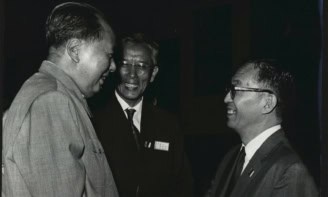By Matin Durrani
The Royal Society – one of the oldest scientific societies in the world – has been spending all this year marking its 350th anniversary.
The society was founded on 30 November 1660 and its outgoing president is the Cambridge University cosmologist Martin Rees.
Rees, whom I interviewed earlier this year (see video above), stepped down yesterday after five years in the hot seat, to be replaced by the Nobel-prize-winning geneticist Sir Paul Nurse, who was lured back to the UK after a stint in New York.
It takes a certain polished charm, coupled with a clear vision, to get appointed as Royal Society president – a quality that Rees has for sure, as you’ll see from the interview.
Nurse no doubt has those qualities too, insisting to the Observer in a recent interview that “scientists have to earn their licence to operate and that means getting out there to talk to people and explain what we do.”
To mark Nurse’s appointment, the Royal Society has also just released a new report entitled Science Sees Further: How Science Will Answer Some of the World’s Biggest Questions containing 12 articles on the “most exciting areas of science today”.
The topics are quite general – ageing and Web science being among them, with the most closely related to physics probably being those on, greenhouse gases, geoengineering and extraterrestrial life.
As for Rees, I doubt his life will get much quieter – he’s still president of Trinity College Cambridge and the UK’s Astronomer Royal after all.



